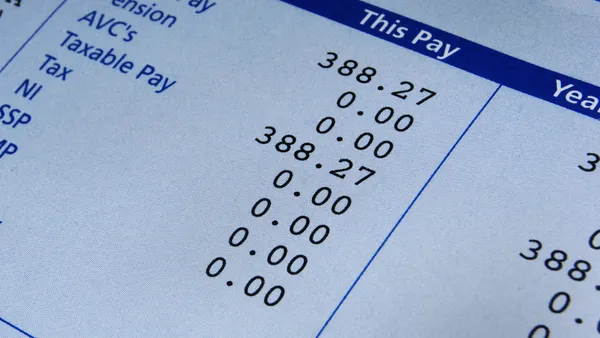While the Corporate Transparency Act is currently in legal limbo, finance leaders and compliance officers should determine if they are subject to it and prepare to comply by filing the necessary documents, experts say.
Passed in 2021, the law was designed to prevent bad actors from using legal entities to shield their identities and assets by requiring companies subject to it to report some basic information about the entity’s ownership to the Financial Crimes Enforcement Network, the Treasury division that’s administering the requirements. While it applies mainly to companies that have fewer than 20 employees and annual revenues of $5 million or less, large companies might not be off the hook if they have U.S.-based subsidiaries that are considered independent entities, according to Industry Dive sister publication Legal Dive.
A cloud has hung over the new law since March when a U.S. federal judge found the CTA unconstitutional, and there have been similar suits filed in in Maine and and Michigan, according to George May, vice president of Small Business with Wolters Kluwer.
But he noted that for now the Alabama federal court ruling only applies to members of the National Small Business Association, who were the plaintiffs. As such, May said it’s best for firms to assume they may be subject to the new regulations.
“Our advice to our clients is this obligation is real, it is a law passed by Congress with bipartisan support,” May said, noting that the consulting firm would never advise clients to allow a federal filing deadline to go by hoping a court case will relieve them of a legal obligation. “The idea of saying ‘I could get excused and not have to turn in my homework’ does not seem like sound thinking,” he said.
Likewise, even in the wake of the litigation, Tom O'Saben, director of tax content and government relations at the National Association of Tax Professionals, is also telling companies and individuals to continue to meet the rule’s filing requirements.
“What we've been told is the objection to the filing requirement is specific only to those who have brought the charge and this is not to be accepted as a general pause in the filing requirements. All other parties should continue to file, continue to meet obligations regardless of where the case is right now, because until we get a resolution, there has not been a stay,” O’Saben said in an interview.
While not all CFOs’ organizations will be subject to the rule, finance chiefs and compliance officers should check whether they are, O’Saben said. “CFOs should be concerned,” O’Saben said.
At its core, the law applies to applies to domestic corporations, LLCs and certain others with revenue below the $5 million benchmark. If it applies, companies must identify their so-called beneficial owners, defined as those who either directly or indirectly exercises substantial control over the entity, or an entity that owns or controls at least 25% of the reporting company’s ownership interests.
Through the federal government’s FinCEN portal, subject companies must provide their full legal name; any trade or “doing business as” name; current U.S. address or the foreign jurisdiction the entity was formed in; and an IRS Taxpayer Identification Number. Most must file by Jan. 1, 2025.
When all is said and done, the CTA filings are relatively straightforward, O’Saben said, cautioning companies about vendors who are making a business out of handling them.
“Compliance is relatively easy,” O’Saben said. “But...there are a lot of organizations preying on that fear and offering to do it for a fee.”












